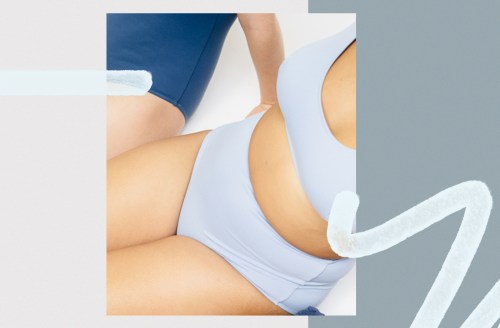I’m a gynecologist, and these are the top 4 things I’m begging you to stop doing to your vagina
Gynecologists see people do a lot of bad things to their vaginas, mostly, when those things go wrong. These are their vaginal health tips on what not to do.

Vaginas are pretty freaking cool. Your vagina allows you to orgasm (that’s cool), give life (that’s cool), and is self-cleaning (pretty pretty cool). But despite all of the vagina’s magical powers, we still carry a lot of shame around our genitals, which can lead to doing some not-so-nice treatment to them.
And who’s on the front line of this not-so-nice treatment? Gynecologists. Below, gynecologists share vaginal health tips on the top five things they’re begging you to stop doing to your vag.
4 things to stop doing to your vagina for vaginal health
1. Douching
Jyoti Desai, MD, FACOG, an attending OB/GYN at the University of Nevada, Las Vegas (UNLV) School of Medicine, says she still has many patients who douche. “When you actually look into vaginal health and cleaning routines of patients who come in for discharge or bacterial vaginosis, you often reveal that they douche,” she says. “Chronic vaginitis is so difficult to live with as a patient and difficult for us to treat quickly or efficiently as a provider.”
Douching changes the natural flora of the vagina, explains Nancy Gaba, MD, FACOG, chair of the department of Obstetrics and Gynecology at George Washington University. “This may allow bacteria to grow that might not otherwise be there, and can lead to infection,” she says. “Leave your vagina alone—it can clean itself!”
2. Using special washes
You’ve seen the scented washes that promise to balance your vagina’s pH. Lauren Streicher, MD, clinical professor of obstetrics and gynecology at Northwestern University’s medical school, explains that these washes have a major flaw: they clean the vulva, not the vagina. “If you have really bad breath, would you wash your face? No, but that’s people are doing,” says Dr. Streicher.
Dr. Streicher says a lot of odor issues are self-perceived, and don’t need covering up. But, if you have an infection that’s truly altering your vagina’s scent, she says these washes are the last thing you’ll want to use. “These washes can be irritating to the external vulvar tissue, and even in bigger picture, if someone does have a bacterial vaginosis and keeps covering it up by putting tutti fruiti vulvar wash, then you’re going to continue to have your bacterial vaginosis,” she says. Check in with a doctor if you’re showing symptoms of an infection like any abnormal odors or discharge.
3. Removing all of your pubic hair
Sarah Cigna, MD, assistant professor of obstetrics and gynecology at George Washington University wants you to reconsider unnecessary skin-damaging hair removal practices. “Only remove hair if you want it gone—don’t try to replicate hairless appearance for anyone else’s benefit,” she says. “Shaving and hair removal chemical creams are typically the worst for the vulvar skin. Lasers and waxing are less traumatizing when done safely by someone who is skilled.”
And when you remove all of your hair, you can see way more of yourself, which Dr. Streicher says may have some unintended consequences. “When you remove the pubic hair, it’s all of a sudden very easy to look at yourself, and by nature, people are self-critical and have this idea of what’s normal or attractive,” she says. Embracing that big bush energy may help you love your bits just the way they are.
Here’s everything a derm wants you to know about removing hair down there:
4. Getting vulva aesthetic surgery
Stephanie McClellan, MD, chief medical officer at Tia Clinic, says she’s noticed increased interest in procedures like vaginal rejuvenation and designer vaginoplasty. But you should go in armed with the facts when considering these.
“While there are definite medical indications for vaginal and vulvar surgical procedures, including laser treatments, the vast majority are performed for cosmetic reasons,” she says. “These procedures are expensive, can have complications like all surgical procedures, and have not been studied with long-term follow-up.” She says this is particularly true of laser treatments, which have mostly industry-sponsored studies. So make sure you talk to your doctor before deciding on any procedure.
Dr. Cigna says that no vulva is exactly the same, and that it’s perfectly normal for your vulva to change as you age. “Skin texture changes, hair patterns change, and colors change,” she says. “Pregnancy changes the color, shape, and architecture of the vulva, a vaginal delivery will result in some changes as well.”
Your vagina has 5 pleasure zones, and the g-spot is just one of them. And to maximize your pleasure, a sex therapist wants you to take a hand mirror to your vagina.
Sign Up for Our Daily Newsletter
Get all the latest in wellness, trends, food, fitness, beauty, and more delivered right to your inbox.
Got it, you've been added to our email list.










